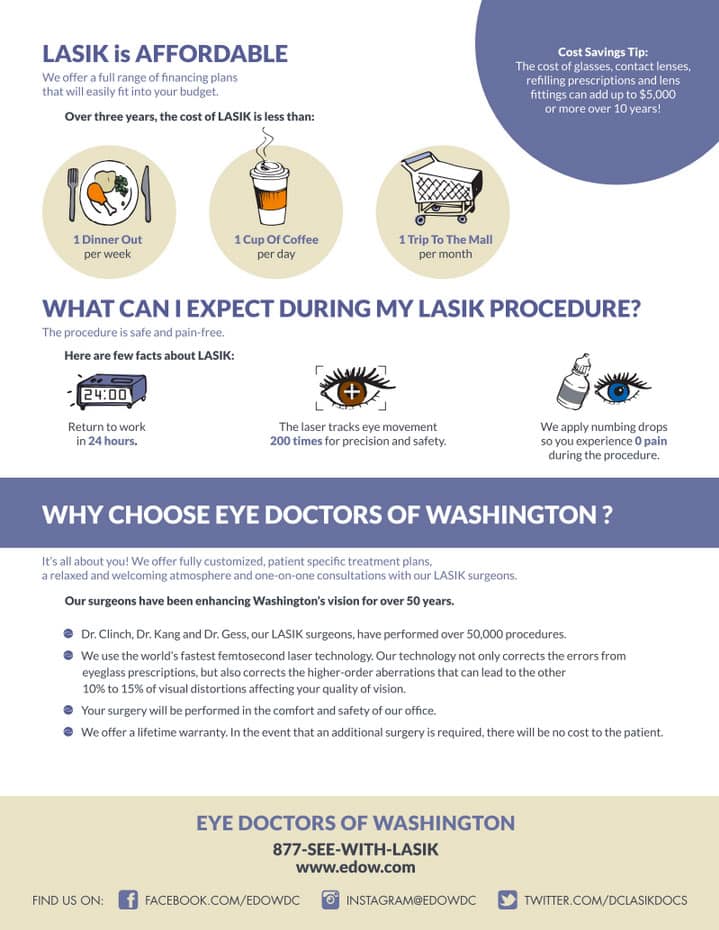Is SMILE Eye Surgical Procedure Right For You? Trick Factors To Consider And Insights
Is SMILE Eye Surgical Procedure Right For You? Trick Factors To Consider And Insights
Blog Article
Team Writer-Frederiksen Mooney
If you're considering SMILE eye surgical treatment, contemplate this: are you prepared to welcome potential visual liberty, or does the idea of any kind of risks make you hesitate? Your decision will certainly rest on a careful balance of evaluating the advantages versus the uncertainties. It's vital to dig deeper right into the subtleties of SMILE surgical treatment to make an enlightened option that aligns with your aesthetic objectives.
Recognizing SMILE Eye Surgical Procedure
When considering SMILE Eye Surgery, it is very important to comprehend the treatment and its benefits. SMILE, which represents Little Cut Lenticule Removal, is a minimally intrusive laser eye surgery that fixes usual vision troubles like nearsightedness (nearsightedness).
During the procedure, your eye doctor will use a femtosecond laser to develop a small cut in your cornea. Through this cut, a small disc of cells called a lenticule is gotten rid of, reshaping the cornea and remedying your vision.
One of the crucial advantages of SMILE Eye Surgical treatment is its fast healing time. Many patients experience enhanced vision within a day or 2 after the treatment, with very little pain.
Additionally, SMILE is known for its high success rate in supplying long-lasting vision modification. Unlike LASIK, SMILE doesn't need the production of a flap in the cornea, minimizing the threat of issues and allowing for a more secure corneal framework post-surgery.
Understanding the procedure and its advantages is essential when thinking about SMILE Eye Surgery for vision modification.
Advantages and disadvantages of SMILE
Considering SMILE Eye Surgery for vision correction comes with different advantages and possible disadvantages.
One of the primary pros of SMILE is its minimally intrusive nature, as it involves a small incision and usually causes fast recovery times. does medicare part b cover cataract surgery is likewise known for causing minimal pain and completely dry eye symptoms post-surgery compared to various other vision modification methods. In addition, SMILE has been shown to offer outstanding visual outcomes, with numerous individuals attaining 20/20 vision or much better.
On the other hand, a possible disadvantage of SMILE is that it might not appropriate for people with extreme refractive mistakes, as the therapy range is rather limited contrasted to LASIK. One more consideration is that the understanding contour for specialists carrying out SMILE can affect the schedule of seasoned suppliers in particular areas.
It is essential to consider these pros and cons carefully when determining if SMILE is the best selection for your vision modification needs.
Figuring Out Qualification for SMILE
To establish if you're qualified for SMILE eye surgery, your optometrist will conduct an extensive assessment of your eye health and wellness and vision demands. Throughout this analysis, factors such as the stability of your vision prescription, the thickness of your cornea, and the overall health of your eyes will certainly be analyzed.
Normally, candidates for SMILE are over 22 years of ages, have a steady vision prescription for at least a year, and have healthy corneas without problems like keratoconus.
Your ophthalmologist will certainly likewise consider your general eye health, any type of existing eye problems, and your lifestyle needs to figure out if SMILE is the ideal option for you. It's essential to connect any specific aesthetic needs or worries you may have during this analysis to make sure that the therapy straightens with your assumptions.
If you aren't qualified for SMILE, your optometrist might advise alternative vision adjustment options that much better match your private needs and eye wellness condition.
Final thought
Ultimately, making a decision whether SMILE eye surgery is right for you calls for cautious factor to consider of your specific eye health and aesthetic requirements. Seek advice from your ophthalmologist to establish your eligibility for the treatment and weigh the prospective advantages and drawbacks. Keep in mind to connect any type of worries or concerns you might have during the evaluation procedure to make an educated decision concerning your vision improvement choices.
